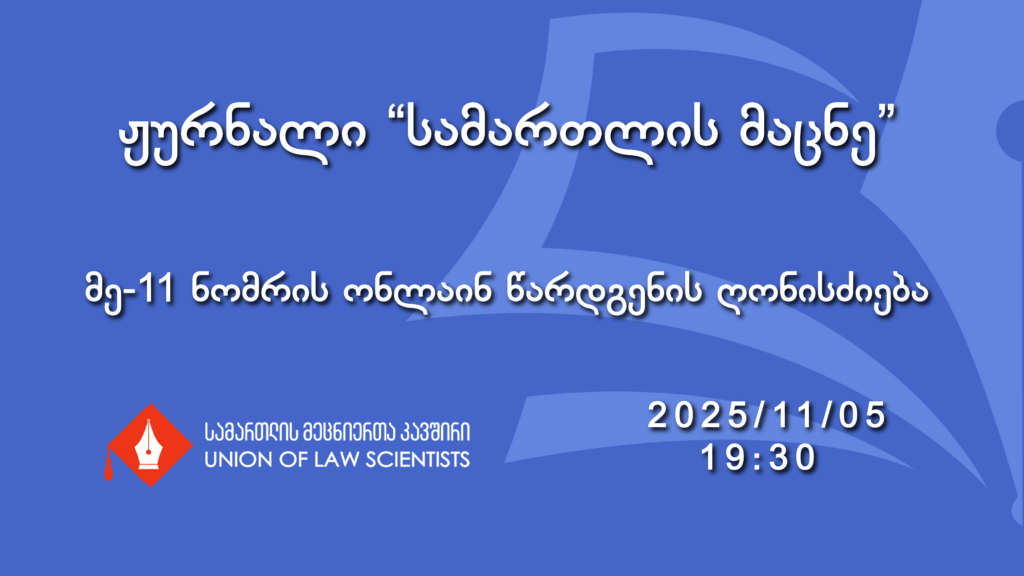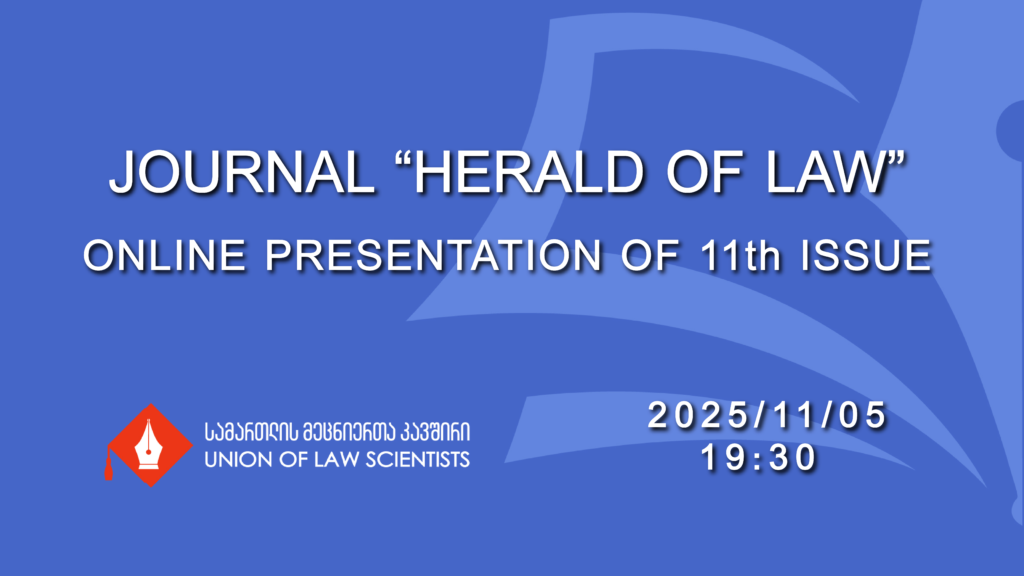Mandatory share institute,as a state intervention in the right of inheritance (Comparative legal analysis)
Abstract:
Mandatory share, which is frequently referred to as the obligatory part of coercive inheritance is a legal concept for some jurisdictions, limiting freedom of the individual to manage own assets by his/her testaments.
The specifics of the mandatory share greatly varies between countries and even within different regions or states of the country. In some jurisdictions, the mandatory share may be a fixed percentage of the estate, while in others it may depend on factors such as the number of heirs and their relationship to the deceased.
This article will discuss the conditions for determining the mandatory share, the scope of regulation and ways of confiscating it from a comparative legal point of view. On the example of the law of Georgia and several countries, the essence of the Mandatory Share as a limiting lever of the last will of the successor will be understood from the side of the state, the scope of its intervention on the example of the law of different countries. The differences in how each country deals specifically with the last wish of the successor according to its political, social or economic development. Also, we cannot ignore the issue of recognition of an unworthy heir, which is the main factor in confiscation of a compulsory share, and it is during its definition that the legislator’s will is revealed, how far he looks and protects the successor in the exercise of his constitutional right. Different definitions and scope of regulation of unworthy heirs are covered by all countries. The main difference between Georgian legislation and the law of other countries is the reference to the main motive that can make a person an unworthy heir.
Keywords:
will, An unworthy heir, freedom of will, International experience










